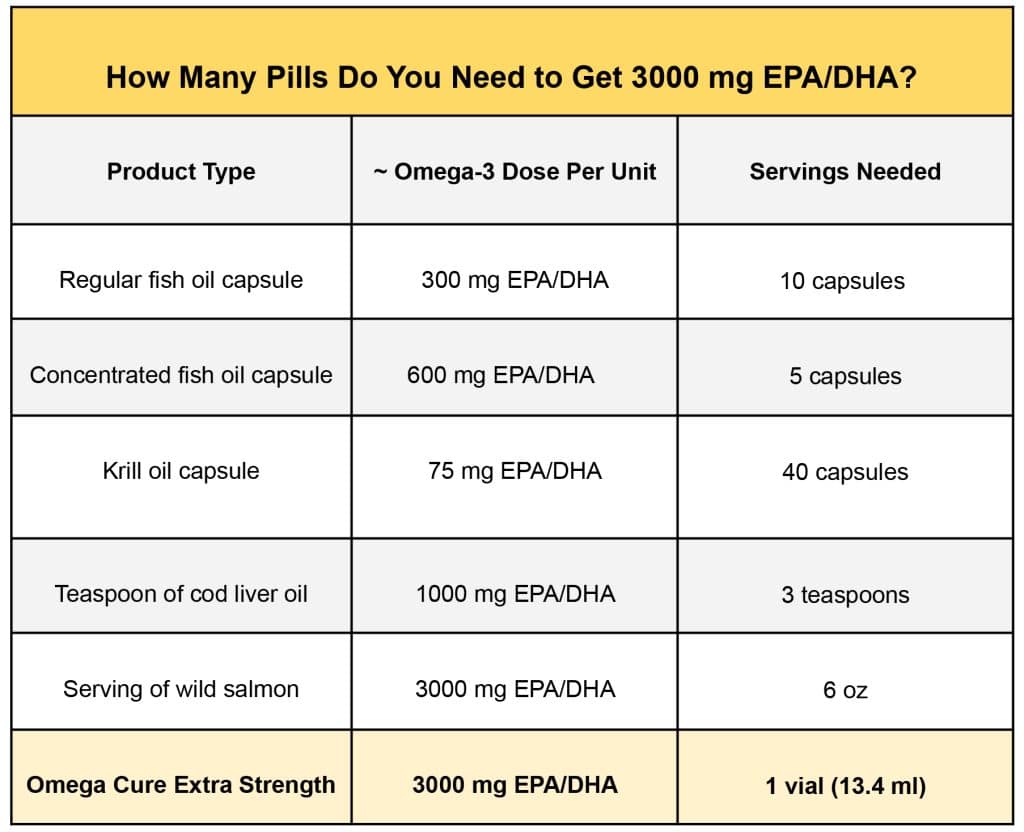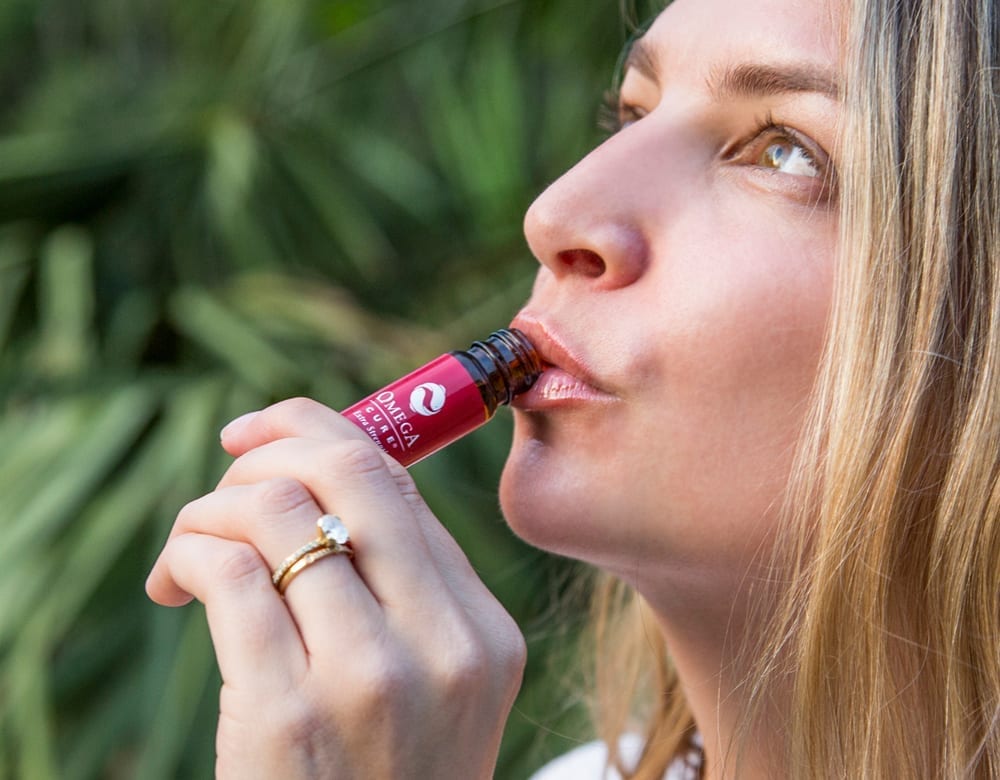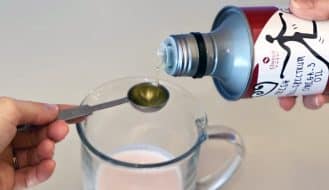Liquid Omega-3 Fish Oil Vs. Capsules: Which Is More Effective?
When we first launched Omega Cure® liquid cod liver oil in 2006, customers started reporting greater benefits than we anticipated based on research studies. Why did this oil seem to be so potent compared to other omega-3 supplements, we wondered?
We thought the answer boiled down to 3 main points: The dose we recommended, the freshness level of the oil, and its full-spectrum quality.
But today, with the new research surrounding the microbiome, we wonder if those factors are just part of the answer. What if one of the biggest reasons Omega Cure works so well is that we refuse to put our oil into capsules?
Let’s take a closer look at the debate around fish oil liquid vs capsules, and their relative strengths and weaknesses.
Why Are Fish Oil Capsules So Prevalent?
When most people think of fish oil, yellowish capsules usually come to mind. It’s worth remembering, however, that fish oil capsules are a relatively recent invention.
Fish oil in liquid form has been used for medicinal reasons since the Ancient Greeks. Already by the 19th century, practitioners studied and recommended a liquid cod liver oil supplement to prevent rickets, fight colds, heal wounds, and reduce joint pain.
These omega-3 fatty acids were considered so effective that during World War II, the British government included free cod liver oil in children’s rations. According to experts, this wartime generation was the healthiest in England’s history, partially thanks to cod liver oil.
Because cod liver oil had a notoriously bad taste and smell, it fell out of favor after the war. When omega-3 research took off a few decades later, encapsulating the oil seemed like an ideal solution. After all, with a capsule, no one would have to taste or smell the oil inside.
The Problem with Fish Oil Capsules
Though they seem more convenient and palatable, fish oil capsules have introduced a number of issues that liquid cod liver oil never had:
Ineffective Omega 3 Doses
First of all, a deceptively small amount of oil fits inside the gelatine capsule of a fish oil supplement. This is a big problem since studies have shown that omega-3 benefits depend on getting an adequate dose.
With regular fish oil capsules, a person typically has to swallow 7-10 gel caps to equal the omega-3 dose found in a traditional tablespoon of cod liver oil (depending on the brand and concentration).
Since most people struggle to swallow this many pills, the switch from liquid to capsules has made it significantly harder for consumers to get the amount of omega-3s that earlier generations enjoyed by the spoonful.
The dose issue is underscored by a 2022 study of fish oil supplements on the USA market. Of the 231 products analyzed, only 2 contained an effective omega-3 dose for lowering cholesterol as the standard serving size. Both were liquid supplements.

Fewer Nutrients
To address the dose issue that fish oil supplements in capsule form have created, many manufacturers concentrate their oil. These concentrates contain more beneficial EPA and/or DHA omega-3 fatty acids in fewer servings. However, to make space for these up-concentrated fatty acids in the gel cap, the manufacturer has to compensate by removing other naturally occurring fatty acids and essential nutrients from the oil.
This kind of processing can negatively impact the nutritional value of the oil. Moreover, studies reveal that highly concentrated omega-3s are not always as readily absorbed in the body as natural fish oils.
Bioavailability Issues
Capsules can create absorption issues for other reasons as well. It is well known in the pharmaceutical industry that different delivery methods can impact the bioavailability of medications. For instance, researchers have found that certain types of liquid medications can be 30 – 37% more bioavailable than the capsule equivalents.
With liquids, there’s no capsule that has to be digested before the contents are absorbed by the body. This means liquid fish oil offers enhanced bioavailability compared to taking fish oil supplements in capsule form.
Rancidity Problems
As we’ve addressed in other articles, omega-3 oils are susceptible to spoiling (or oxidizing) due to the fatty acids’ many double bonds. According to numerous international studies, many fish oil supplements are rancid long before their stated expiration date.
Unfortunately, heat and oxygen exposure during the encapsulation process can contribute to turning fish oils rancid. In addition, when fish oil is put into capsules, people no longer taste and smell what they are getting. Since our taste buds help us assess oxidation, capsules can make it harder for consumers to assess whether their oil is rancid or not.
Microbiome magic: Omega-3s are beneficial for the microbiome. But how these fatty acids impact the bacteria in our gut and mouth may depend in part on the delivery form.
Liquid Fish Oil May Balance the Microbiome More Effectively
Aside from the above issues, research on the microbiome also sheds light on why fish oil capsules may be less effective than getting your omega-3s from foods and in liquid form.
Importantly, it’s not just the gut that has a microbiome. The mouth also contains a unique ecosystem of some 700 different bacteria species. This oral microbiome is deeply involved in our relationship with disease. For instance, new research shows that the same bacteria that causes periodontitis (a common gum infection) also seems to be responsible for the onset of Alzheimer’s disease.
We already know that omega-3s have a beneficial impact on the microbiome, increasing the diversity of bacteria and having a favorable antimicrobial impact on certain bacterial strains. In cell studies, scientists have additionally found that the omega-3s’ antibacterial effects include Porphyromonas gingivalis, the culprit behind periodontitis.
Now consider: If the mouth is where we are initially exposed to bacteria like P. gingivalis, what happens when we swallow fish oil capsules? In capsules, the oil completely bypasses the microbiome in the mouth and the upper part of the digestive tract.
In contrast, when you consume a liquid formulation, like Omega Cure, the liquid fish oil comes in direct contact with the oral cavity and mouth mucosa, increasing the likelihood of the oil having a beneficial effect on these bacteria.
Fish Oil Capsule Benefits
Fish oil capsules have some important advantages compared to liquid fish oils and cod liver oils.
Capsules have made it easier for scientists to standardize the omega-3 doses used in research, as well as conduct double-blind studies. Capsules also simplify the process of getting a consistent daily dose, since liquid fish oils can be tricky to measure precisely.
Fish oil capsules are also easy to travel with, do not require refrigeration, avoid oily texture issues, and fit into many people’s medication and supplement routines.
But are these reasons worth it?
Fresh Liquid Fish Oil for Greater Health Benefits
We have dedicated years to solving some of these capsule advantages by creating Omega Cure Extra Strength and Omega Restore®.
Made in pre-measured vials, they deliver a standardized dose of liquid omega-3s. They are also travel-friendly.
Best of all, these formulations have little taste or smell, avoiding the palatability issues that drove people to using capsules in the first place.
Our goal is that by using these products, people will no longer have to choose between convenience and getting the full benefits of liquid cod liver oil.
An Effective Omega-3 Dose, Made Simple
Experience the Omega3 Innovations difference for yourself with the most effective fish oil supplement on the market.
Buy Now
Recent Posts
-
Omega-3
7 Signs You Have an Omega-3 Deficiency
Despite living in an age of nutritional abundance, roughly 95% of Americans suffer from a silent epidemic: omega-3 deficiency. This trend has far-reaching implications for public health but remains under...1 week ago -
Dose, Omega-3
How Much Omega 3 Per Day Should I Take?
If you pop a daily fish oil capsule – or drink a teaspoon of cod liver oil most mornings – it can be tempting to think you're all set in...1 week ago -
Dose, Freshness, Omega-3
5 Mistakes People Make When Taking Liquid Fish Oil
If you are already taking fish oil as liquid and not as pills, give yourself a big pat on the back! You've clearly done your research, and pay attention to...1 week ago -
Heart Health, Sleep
What’s the Best Time to Take Your Fish Oil Supplement?
Breakfast has long been the preferred time for taking medications, supplements, and cod liver oil. At the start of each day, many of us like to take advantage of our...1 week ago -
Dose, Omega-3
Liquid Omega-3 Fish Oil Vs. Capsules: Which Is More Effective?
When we first launched Omega Cure® liquid cod liver oil in 2006, customers started reporting greater benefits than we anticipated based on research studies. Why did this oil seem to...1 week ago -
Omega-3
Fish Oil vs Omega 3: What’s the Difference?
Fish oil and omega-3. The two words often get tossed around interchangeably. But as you may have guessed, fish oil and omega 3 are not actually the same thing. They...3 weeks ago








